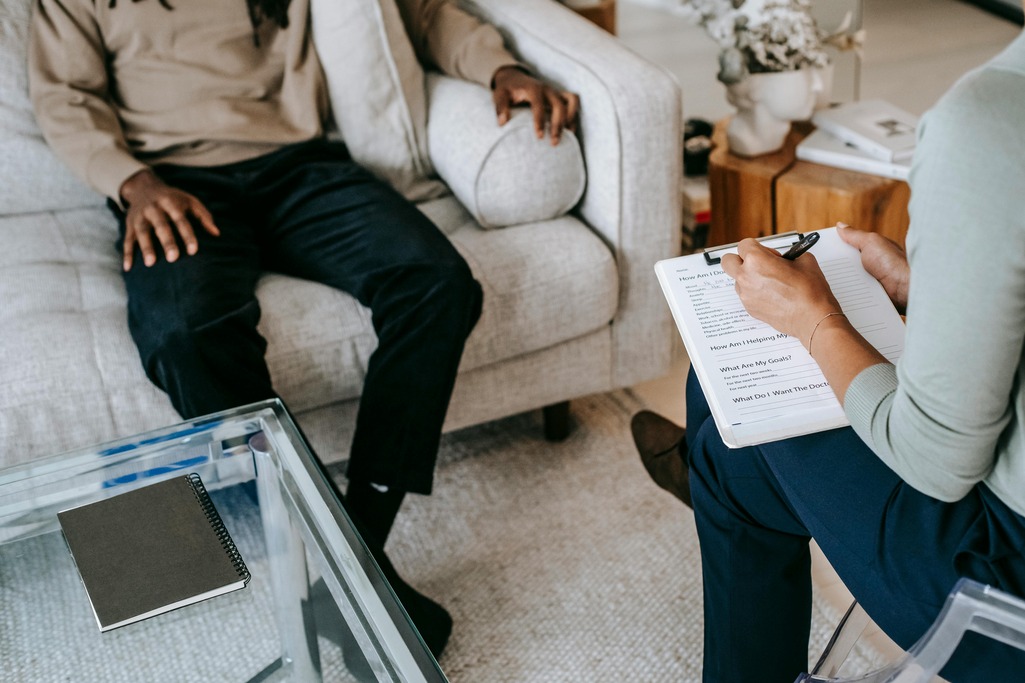
Starting anything new can be exciting and nerve-racking, and this includes taking the first steps of therapy. After all, you are moving towards understanding yourself better and acknowledging the problems you have been experiencing. I want to let you know that if you are feeling uncertain about what to expect in the first session, you’re not alone.
Many people wonder how to prepare for that first meeting, especially when they’re not sure what to talk about or what the session will be like. For instance, you might have worries about what to discuss, whether you will feel judged by your psychologist or even be experiencing shame for needing to attend therapy in the first place. Perhaps you are nervous about speaking to new people. I hope to reassure you that psychologists are trained to help you feel at ease when discussing difficult topics, and we are not here to judge you. We encounter such a wide range of experiences and challenges throughout our careers, and we strive to listen without judgment. It is okay to feel nervous before your first session; after all, meeting someone new can bring up different emotions. Still, initial appointments tend to take a similar structure no matter your psychologist, and there are some ways you can prepare to get the most out of this initial meeting that should put you in good stead.
Consider the practicalities
Before your first session, you should have had some pre-session communication with your psychologist where you have been made aware of the practical details involved in attending therapy so you can plan ahead. This should cover things like the location, date/time and how long a session should last, as well as how you will be paying for your sessions. If you are prepared for managing logistical details then you may feel more focused on the session itself.
Location
In terms of where the appointment is taking place, be sure to consider where you are going, whether it’s in-person or a virtual appointment.
Do you need to make travel arrangements? How long will it take to arrive? Do you know where to go?
For online sessions, have you received a link to a video call? Do you need to log onto Zoom, Microsoft Teams, or another secure platform?
Session Length
A standard psychology session should last around 50 minutes. This is considered a clinical hour, where 50 minutes are allocated for the session, and the remaining 10 minutes are intended for writing notes, and/or comfort breaks for your psychologist. It is important to try and arrive on time, as this means you should be able to use the whole 50 minutes. It could be that arriving late impacts the time you have to spend during your session.
Fees and Insurance
Be sure to clarify the cost of each session and how payments will be handled. For instance, some psychologists may prefer bank transfer, whereas others may accept cash payments or use cash machines. If you are using insurance, check that your psychologist is registered with your insurance company, and communicate with your insurer about your coverage.
Try your best to acknowledge your feelings
Starting therapy is a big decision, and being vulnerable with a stranger about personal matters can be intimidating. You might feel a mix of excitement, anxiety, or even scepticism that therapy will help. You might not be fully certain how you feel about it.
Let’s have a moment to sit with your emotions:
When you think about attending therapy, what feelings do you notice? What sensations are present in your body? Is it an intense feeling? Does it feel big, small, or anything in between?
Prepare to share about yourself…but at your own pace
It is important to discuss confidentiality. Your psychologist may start by explaining that everything you share in therapy is confidential, and the only time your psychologist will break confidentiality is if they feel the information you have shared indicates that you are at risk of harm to yourself or someone else.
During your first session, it is expected that your psychologist will ask some personal questions to get to know you better, and it is helpful if you try to be as open as you feel comfortable being. The content of these questions tends to cover your current context, general health and well-being, as well as some information regarding your background. The purpose of these questions is to help your psychologist understand your unique experiences and challenges. It may be helpful to jot down some key information as a helpful guide and ease the pressure of trying to remember what to share in the moment. However, this isn’t a requirement, and your psychologist can guide you through their questions and prompts.
As you speak with your psychologist, it is perfectly fine to open up at your own pace, and you can advise if there are areas that you are not ready to speak about yet, such as a traumatic experience. However, you should anticipate that you might be asked some direct questions regarding matters surrounding risk. Please know that these questions aren’t asked out of nosiness; they are asked from a place of duty of care to protect and safeguard your wellbeing.
Consider why you’re seeking therapy
It can be useful before your first session to take some time to think about what brought you to therapy in the first place. This does not need to be a crystal-clear answer, we understand that life is messy and there might be a number of problems that you want to speak about or hope to address through therapy.
These are some examples to consider:
Are you struggling with anxiety? Have you been experiencing stress from work? Are you having relationship difficulties? Have you been experiencing low mood for a while and have difficulty motivating yourself? Are you struggling with confidence and self-esteem?
It can be useful to reflect on your context and what you have been struggling with so that you can articulate your needs to your psychologist. It might be that you’re unsure of what the core problems are, and this is okay too, it might be that you spend your initial sessions exploring your concerns further to make sense of why you have been feeling a certain way.
Think about what you would you like to achieve from therapy
It can be useful to think about what you would like to achieve from your therapy sessions, as different people may have different needs or goals.
For example:
Do you want to work through a specific event or issue? Would you like to learn new coping strategies? Do you want to understand yourself better?
These are all valid goals for therapy, and they can help inform the way that you and your psychologist work together. It may be that you don’t have this figured out, and this is okay, too. It may be that your goals for therapy end up changing over time.
Still, by understanding your struggles and what you would like to achieve in therapy, it helps to create a collaborative plan. It may be that you would prefer more structure, goal-oriented sessions which fit with a more Cognitive Behavioural Approach, or it could be that you are looking to explore and process your experiences whilst feeling heard in a more Person-Centred Approach.
What are your expectations?
It can be useful to have some time to think about and discuss your expectations during your initial sessions. It is highly unlikely that you will ‘fix’ every problem in the first session or that psychologists will have ‘all the answers’ that you are looking for. A psychologist who is a good match for you will take things one step at a time on your journey, as you build a trusting, safe space to share your experiences. Everybody’s progress is different, and it is hard to determine exactly how many sessions in total you may need. Some clients feel that they have got what they came for in a few sessions, whereas others feel benefit from attending many more.
Remember that your first session is just the beginning. Your psychologist is there to help you, and they’ve likely worked with many clients who have experienced similar feelings to what you are experiencing right now. Therapy is a process, and it takes time to explore, reflect, and try out new coping skills. You don’t need to be perfect, just be yourself. It seems that you may be preparing yourself mentally or emotionally by reading this post, which is encouraging, as if you are open to the process going to therapy could be the first step in moving towards personal growth and healing. You’ve got this!

